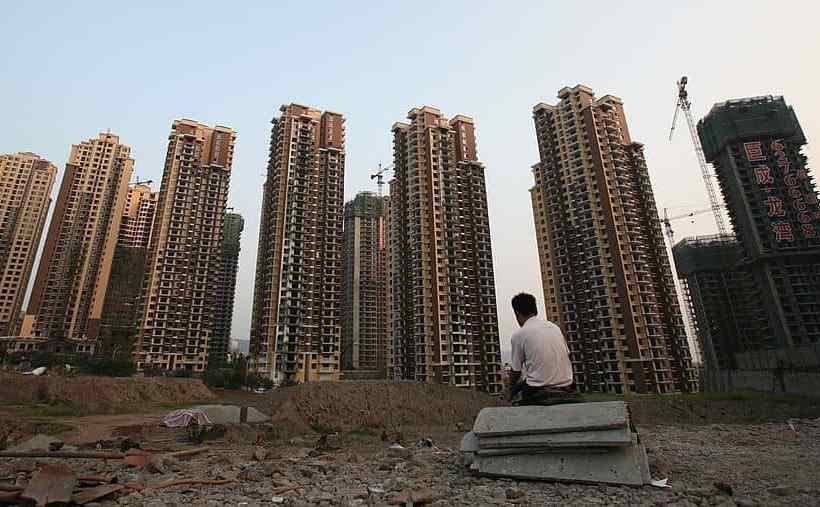Economic growth in China is grinding to a halt. The days of soaring double-digit growth are over, and the malaise facing the country’s spluttering economy goes far deeper than the hit from Covid-19 lockdowns.
Gross domestic product in the April to June quarter grew by a paltry 0.4 per cent from a year earlier, according to figures released on Friday, well below the forecasts of analysts. On a quarter by quarter basis, the economy shrank, down 2.6 per cent compared with January to March. It was sobering reading for China’s communist leaders, who derive much of their legitimacy from their management of a fast-growing economy.
It is easy to blame the impact of the lockdowns. Restrictions were imposed on major cities across the country in March and April. Shanghai locked its residents in their homes for most of that time, and China’s commercial capital saw a year-on-year contraction of 13.7 per cent in the second quarter. Output in the capital Beijing shrank by 2.9 per cent. There is widespread fear in China that more lockdowns are on the way. Some cities, including Shanghai, have fresh Covid outbreaks, and the arrival of the BA.5 variant has rattled businesses and consumers.
But look beyond lockdowns, and the economic outlook is still grim, as China confronts crises in its heavily indebted banking and property sectors.
The meltdown of four provincial lenders in Henan has been blamed on criminal gangs who took control of the banks, and has been presented as a little local trouble. But China’s opaque local banks in particular are heavily indebted, weighed down with bad loans. For years they have colluded with powerful local businesses and the local authorities. Some are little more than Ponzi schemes.
Add to that the struggling property market, which accounts for around a third of GDP, and the scale of the challenges becomes clearer. Property sales by value plunged by 29 per cent in the first half of the year, in spite of governments efforts to prop up the market with subsidies.
And ominously for the CCP, the bursting of the property bubble is provoking a new kind of protest. It’s a more silent protest than the raucous crowd of aggrieved depositors brutally cleared from the capital of Henan last Sunday, but potentially more damaging. It could plunge China into its own mortgage crisis.
Home owners have started a mortgage strike. They are withholding mortgage payments on delayed or unfinished projects, with accusations flying that their money is being stolen or otherwise misappropriated. Homeowners have stopped mortgage payments on at least 100 projects in more than 50 cities as of Wednesday, according to China Real Estate Information, a research firm. That represents less than 2 per cent of total mortgages, but the strike is snowballing, with the numbers increasing four-fold over two days.
Developers are supposed to deposit the payments they receive into designated bank accounts, from which it is withdrawn in batches during construction, but the suspicion is that banks have been colluding with hard-pressed developers and are releasing the funds for other purposes.
This, as the international economic outlook is deteriorating. Soaring energy costs, the war in Ukraine and a possible global recession will all take their toll on China as much as anybody else. And it is at a time when western companies are more closely examining their global supply chains. With geopolitical tensions rising, resilience is now the catchword, and that means diversifying away from China.
The slowdown comes at a sensitive political time for Xi Jinping, as he aims to secure an unprecedented third term as leader at a CCP meeting later this year. The government is still insisting it will achieve 5.5 per cent growth this year. That is highly unlikely. There are limits to what wasteful and debt fuelled public investment can achieve.
Xi could always cook the books. Although their reliability has improved, few analysts have much faith in Chinese government statistics. When I was based in China, a western financial analyst based in Shanghai described Chinese statistics to me as ‘one of the greatest works of contemporary Chinese fiction’. Claims about the rate of economic growth were about as real as the handbags and DVDs in the once notorious Silk Street market in Beijing. The figures were political first and foremost. Analysts employed an array of esoteric techniques to try and ascertain what was really going on with the economy. They looked at diesel and electricity demand, the fluctuating levels of the country’s chronic air pollution, car sales and congestion. One enterprising analyst regularly sent spies to ports to count the ships and throughput of trucks. I have no insight into what these informal measures are now saying, but suspect they are all flashing red.
Got something to add? Join the discussion and comment below.
Get 10 issues for just $10
Subscribe to The Spectator Australia today for the next 10 magazine issues, plus full online access, for just $10.





















Comments
Don't miss out
Join the conversation with other Spectator Australia readers. Subscribe to leave a comment.
SUBSCRIBEAlready a subscriber? Log in